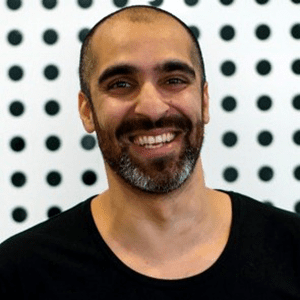

Should every business have a China strategy?
David Thomas explores the business growth and commercial opportunities for Australian businesses with China, particularly the limitless inbound opportunities.
80% of China’s GDP is now generated by the Chinese domestic market … so where are the business opportunities in China for Australian and New Zealand businesses?
The window of opportunity is closing for outbound opportunities, but what about the Inbound opportunities and what is the difference?
Stephanie: Hello and welcome to TEC Live. Stephanie Christopher here, Chief Executive of The Executive Connection. TEC connects CEOs, executives, and business owners to the world’s largest business leader network. We’re committed to delivering actionable insights, accelerating business performance and optimising decision making.
David Thomas is a speaker to our members. He’s a China expert, a consultant with Think Global Consulting and president of the Australia China SMA association. Welcome David.
David: Thank you.
Stephanie: You’re just back from China. I didn’t go with you. You did invite me.
David: I did.
Stephanie: But I didn’t make it. What did I miss out on? What were you doing?
David: I was part of an international study group with the Cheung Kong Global School of Business. Cheung Kong is the company of Mr. Li Ka-shing, one of the richest men in Hong Kong.
Stephanie: Right.
David: This is a global business school in China. They run MBA programs and a lot of business courses. I was part of an international study group to go and be part of this program run by a chap called Mr. Bo Ji, who gets affectionately known as Mr. Bojangles.
Stephanie: That’s a given.
David: He’s a terrific guy and really charismatic. Bilingual, great presenter. Great speaker. Looking forward to bringing him to Australia actually.
Stephanie: Is he based at the business school?
David: He is in London but he’s their assistant Dean and he ran this international study program.
Stephanie: Right. Right. And so it was for a week was it?
David: It was for a week. We went to four cities. In every city, we met with companies and we listened to professors and we got to network a lot with their alumni and we kind of started the three cups of tea.
Stephanie: We’ll talk about that, we’ll come back to that. So it was your first cup, I take it?
David: It was our first cup as a stranger.
Stephanie: You first cup of tea. All right, we will get back to that very soon. So today I’m here with a longtime friend of TEC China. Inbound, outbound. What’s the difference and why does it matter?
David: It matters a lot, inbound, and I want to talk about that but let’s just quickly talk about outbound. Because I’ve got four or five projects on the go at the moment where we’re taking Australian technology, innovation, and ideas into the China market. I think it’s really important that we do more of this because… I want to talk a minute about consumption in China, which has reached an all-time high. 10 years ago when I started taking people to China, just around the GFC, everybody said with China being such an important export-led economy and with so much, depending on their manufacturing capability, it would take generations before it could become self-sufficient in terms of domestic consumption. But now 80% of China’s GDP is now generated by domestic consumption, meaning that they’re getting to a point where they’re almost self-sufficient. They have a very strong manufacturing capability.
David: They have a lot of companies domestically like Alibaba, Tencent – companies that I went to visit quite recently who are all now on a very fast growth curve. They’re actually only interested in a few things now, which is always around innovation, food, clean agricultural products, AgriTech to help their agricultural environment and other sorts of innovation, which they can bring into China to improve their systems and processes, particularly around healthcare and education. Actually, the window of opportunity for Australia and other foreign countries to get involved in China is starting to close.
Stephanie: So, okay, a really naive question then. What happened in those 10 years then for domestic consumption to grow so significantly?
David: There was a huge stimulus.
Stephanie: Right.
David: China has a top down way of doing things, not bottom up like we do. It all starts with the government. The government made a very important decision to stimulate local consumption, to encourage people to spend money, and that’s what’s happened. If you look at companies like Alibaba, you can track the start of their growth to around 2008.
Stephanie: Isn’t that interesting.
David: It all came from the government.
Stephanie: And so you say the window is closing because domestic consumption is 80% of GDP, is that right?
David: Well, I mean, take the iPhone. 10 years ago they were importing all their phones from overseas, particularly from Americas. You can look at Apple going back to 10 years ago and China was earning let’s say $100 in a $1000 iPhone. The consumer is being charged a thousand, China’s making a hundred from the part of the manufacturing that they’re involved in.
Stephanie: Yes.
David: Now Huawei has a phone, a smart phone. It actually costs about half the price of an iPhone and China makes 100% of the margin. That’s what’s called moving up the value chain, high value manufacturing and innovation being driven from within. Of course, as a result, they don’t need too many more iPhones produced overseas or designed overseas because they can now do it all themselves.
Stephanie: It’s interesting because when I first met you and heard you start… Well when I first heard you talk about this, that’s five years ago now. It was a very different story, wasn’t it?
David: Yes it was, because they weren’t as far advanced as they are now. They were only at the time probably about 40% driven domestic consumption, so it has changed a lot.
Stephanie: Right. So, before we get to inbound, which is the big opportunity and I know you’re so keen on that, I want to know a little bit more about you. How did you become a China expert?
David: Yes. Well, I lived in Hong Kong for eight years, in the eighties and nineties. I was a wealth manager. I used to look after money for high net worth individuals in the region. That was in Hong Kong, my first sort of look at China in 1989. As we all know, there was some events in Tiananmen Square in June 89 which –
Stephanie: 30 years ago now.
David: 30 years to this very week, which sort of woke me up from my slumber in terms of the importance and relevance of China. I literally within three months of that event, got on a plane and went to Beijing. I spent a week, you know, as a tourist just trying to understand what was happening and 30 years later, I go back all the time and I’ve had this lifelong interest in China and all things Chinese.
Stephanie: You’ve just been there.
David: I was there two weeks ago. Yes.
Stephanie: So tell us about that.
David: I was part of an international study group, which was looking at China. We listened to lots of professors talking about what was happening. We visited lots of companies. Some of the largest names that we know of: Alibaba, Tencent. We visited four cities in six days and every morning we got up early and did Tai-Chi. We all felt at the end of it that we’d been fully immersed in what was happening.
Stephanie: Well that’s good. I think you were saying to me before, David, that it was a really international group. It wasn’t just Australians in China.
David: Right.
Stephanie: Where were people from on that tour?
David: Mainly from Europe. We had Brits and Portuguese and Italians. We had people from the Middle East. We had a Brazilian. It was very international, and I was the only person from this part of the world, which was good because it gave me a different perspective. Australia is not top of their list in terms of countries that they’re interested in.
Stephanie: That’s actually something I wanted to ask. So how have different countries embraced the opportunities in China compared with Australians?
David: Much more quickly.
Stephanie: Right.
David: They’re further advanced than we are. Like Germany’s there all the time. The British government have appointed an individual who was on our group, to be responsible for the whole of the Greater Bay area, which is the Southern part of China. So I feel that we’re not fast enough to embrace China. We’re also too close to the US which means that politically we’re in the deep freeze right now.
Stephanie: Yeah.
David: Which is definitely acting against us because we’re seen to be too close to America and at the moment countries like the UK and Germany… Well the UK is a good example because they’re trying to exit from Europe at the moment. They need to start new trading relationships and China is very important to them. Probably more important than it is to us, or so it seems.
Stephanie: What’s held Australia back, do you think? Or Australian businesses, I guess.
David: We’re quite conservative I think.
Stephanie: In what way?
David: I think that Australians are generally quite happy with a lot here in Australia. They quite like to enjoy the way of life here. I spend a lot of my time persuading chief executives of Australian companies to give up their homes in Mosman or Tura and go and live on the 13th floor of an apartment in Shanghai and they’re not always that keen to do that. Whereas, you know, I don’t need to talk badly of my old home, the UK, but many people in Britain are desperate to get out of the UK because the weather’s so awful. I’m not saying that it’s all about the weather, but I do think that we have a good life in Australia and therefore we’re not as keen to develop overseas markets perhaps as some other countries are.
Stephanie: Do you have some examples of Australian businesses you’ve worked with who have actually done well in embracing the opportunity?
David: Absolutely. There’s one TEC member which I probably shouldn’t name, which is in the lighting industry and has a very innovative lighting capability. They’ve been very successful here in Australia and we’re taking them into China starting in the South in Guangzhou. We’re already getting some serious traction there. My hope is that in another two years or three I can persuade the CEO to go and live in China. He won’t be so pleased about that.
Stephanie: I can’t picture it. I know who you’re talking about. I can’t picture him leaving the beach. Really.
David: No, I can’t either. But anyway, someone in his team may have to.
Stephanie: They might have to.
David: We’re getting good success actually already. You know, from a standing start we’re getting some success because again, here is a capability around innovation and design, which China needs. They’re trying to move up the value chain themselves. We can teach them about how to deliver that. I think there’s a very good chance of success there.
Stephanie: In that case, it’s not necessarily the product, it’s the services or the…
David: Implementation.
Stephanie: The implementation that wraps around the product. So innovation in this case.
David: Yes, because of course they have a far lower cost of labor in China, so we can never compete in manufacturing where people are involved. But where we can offer value is around innovation and design and creativity and teaching them how to light a premium space. Because at the moment they’re still perhaps at the lower end of a value chain in that area.
Stephanie: In that area, particularly in that industry.
Stephanie: Yes. Okay, so another one, and we will get to inbound, I promise.
David: Yes.
Stephanie: How much impact do you think stories like Australian executives being imprisoned in China affects Australian businesses thinking that they’d like to move into that area as an opportunity.
David: I hope it doesn’t.
Stephanie: Right. It shouldn’t.
David: Because it’s only a very small handful. In the case of Crown, we know what they did, which was illegal in China. They were promoting casinos in China. I’m sure it’s all very grey, but I think we know that they were infringing some local rules and the Chinese deal with that sort of thing fairly harshly. But the number of people who’ve been put in prison from Australia in China is less than the number of people that get killed by sharks on our beaches.
Stephanie: Right. Okay, so there is certainly a cultural awareness and observance that’s critical, isn’t it?
David: Yes. Well, and it is for any Australian doing business anywhere outside Australia, obviously.
David: Right. There’s 20 million of us and there’s a billion of them.
Stephanie: So how do you support businesses in that area?
David: Oh, I teach them a lot about cultural differences. A good example is hierarchy. The Chinese are very hierarchical in the way they do business. Decisions are made at the top and they filter all the way down. So in order to get a decision out of an organization, you have to get to the top and whereas in our culture, we run very flat structures. We’re very egalitarian in our approach and we find it difficult to operate in a hierarchical system. There are strategies and techniques that we have to go through to overcome that problem, but it requires a change of mindset. That’s just one example.
Stephanie: I love the story you tell about the cups of tea.
David: Right.
Stephanie: Tell us that one.
David: Well I tell a story, which is a proverb about a stranger who comes to Asia and is welcomed into somebody’s house and goes through a process of taking three cups of tea. The first cup you’re a stranger. If you think about that in a business context, the first cup could just be your website or it could be the first time you meet somebody and then you need to earn the right and the respect to be treated to another cup of tea when you become a friend.
David: Now if you can get to that point, you can then broaden and deepen the relationship further. Then if you’re very lucky, you get to the third cup of tea where you become a trusted member of the family. At that point, of course, you can then do business and get on with the stuff that you really want to deal with, which is making money.
David: Most people try and get there too quickly. There’s a process. It takes time. Also it needs an open heart.
Stephanie: Because the Australia way can be very direct.
David: Not just Australia, the Western way.
Stephanie: The Western way.
David: But yes, we want to get on with it. Let’s stop wasting time.
Stephanie: “We’re doing this on our time.” Yeah.
David: We would often go for a dinner with some Chinese partners or investors and you might never talk business. You’re just hoping to be invited back for the second cup of tea.
Stephanie: For the second cup of tea.
David: We find that very difficult. I find it personally very, very difficult because you can sometimes fly all the way to China for a dinner and you want an outcome of course, but it’s all part of them trying to size up how genuine you are, how serious you are and whether they can trust you or not.
Stephanie: That would really be the case for having a partner who knows the lay of the land really, and the cultural nuances.
David: Yes, of course. I think in most cases Australian companies will have to have a joint venture of some sort in China with a partner that they trust. But of course to get to that point they’ve got to go through the three cups process.
Stephanie: The cups of tea. I love three cups of tea. Tell me about inbound. The waiting has shifted from outbound now inbound. Give me a definition of what that means.
David: Well, yes. What I’m saying here is that I think that to take a small business to China is quite hard work and it needs a certain level of commitment, money, resources that aren’t always available. But I think every business, every small business including the whole TEC membership should be getting excited about the inbound opportunity. What I mean by that is the addressable market of Chinese individuals, business people, investors, entrepreneurs who are coming to Australia. That represents a group of about 1.2 million locals who already live here, about 28000 migrants a year who come here from China, about 165000 students who are in our universities. The millennials as we call them, who are very rich people because they’re products of the one child policy. They have a lot of money and resources at their disposal. Then the tourists, and there’s about 1.4 million of those and rising very quickly to 3 million by the end of this decade probably. We’re looking at 3 million people who are in Australia now who are either shopping or investing or looking to set up businesses here. I think everybody can get involved in that group.
Stephanie: Where do you start?
David: You start by opening your eyes, your heart, your mind to the Chinese. It might mean you’ve got to have a website that’s in Chinese. It might mean that you need to have some people in your business who speak Chinese. It might mean that you need to convert all your marketing materials into Chinese. I heard an example just this week about a whiskey company who in the whole of last year sold 30 bottles of whiskey in the duty free shop of Sydney airport. 30 bottles in a whole year. I got to them at the end of the last year and persuaded them to put two Chinese people on their stand in the duty free area at Sydney airport. In the month of February, they sold 300 bottles in one month because they put two Chinese people on the stand who could speak Chinese.
Stephanie: Chinese-speaking. That wasn’t changing branding or anything.
David: That was all they did. Two Chinese speaking people on their stand. During the course of the month of February, which was when Chinese New Year was, we get an influx of visitors at that time and they sold 300 bottles in a month. It’s not rocket science. It just requires a different way of thinking.
Stephanie: That doesn’t require changing your whole business strategy or anything really.
David: Not really. It just means that you need to just take a minute to think about the things you could do that would make a difference. One thing you could definitely do is go down to your local university, find two bright young Chinese students who are looking for work experience and bring them into your business and mentor them and teach them and have a Chinese speaking person in your office.
Stephanie: Do you know what’s interesting? I’ve read something in the fin review today about international students coming out of university with the wrong view about what Australian businesses are looking for. I can’t remember exact words, but that would be a really smart thing. I mean the universities are obviously going to be very welcoming of that, aren’t they?
David: Yes, they’re always looking for ways to place their students in businesses to give them work experience. Actually that’s part of the university offer in a way, is that we’re going to educate your children. We’re also going to give them work experience. If they’re Chinese kids coming out of China in Australia and Sydney or Melbourne or other cities, then they’re all interested in getting local work experience.
Stephanie: Well I guess it just depends whatever faculty you go to. There’d be Chinese marketing students, finance…
David: Yes. Finance law, law, finance, marketing. They’re all in that big business school. They’re all learning about HR and marketing and finance, accounting and so on. Yeah, they would all be interested in work experience and we could certainly take advantage of that. There’s 165000 of them in Australia.
Stephanie: It’s a big export for Australia, isn’t it?
David: We let them go actually, because they come here, they get their degree, they look for a job, nobody offers them one and they go back to China. We miss that opportunity.
Stephanie: Right. I’ve heard of a few things. I’ve heard a website in Chinese.
David: Yep.
Stephanie: Maybe an intern.
David: Yes.
Stephanie: You know, a university student or a recent graduate. Chinese speaking staff if you’re in retail.
David: Even if you’re not in retail.
Stephanie: Right, of course. What else?
David: Well, you could start thinking about the three cups of tea, which is to build relationships, not transactions. In other words, when people walk into your business, whatever business that is, you may not be too quick to pull out your brochure. You might actually ask some open questions. You might look at how can you build that relationship because you can be pretty sure that most people, whether they be tourists, migrant students or whoever in Australia, are generally quite wealthy. They wouldn’t be here otherwise. If they’re not an interesting prospect for your business individually, they’ll know lots of people that are. You need to go through the process of embracing them into your business, spending time with them, taking them out for lunch maybe, talking to them a bit and trying to find out how you can help them. You’ll be surprised that the things they’ll tell you.
Stephanie: How can Australian business owners, particularly in the SME sector, educate themselves then on not just these tactics that you’ve suggested, but the cultural areas that they need to be aware of to really embrace this opportunity?
David: Well, there’s some great books written on this topic. I’ve written a book myself.
Stephanie: Which I highly recommend.
David: Thank you. There’s also a very good book written by two friends of mine called Think Like Chinese, which is written by a lady called Helen Jung who’s a good friend and her husband, Jeff Baker, who’s an Australian. Helen and Jeff, Australian and Chinese, were trying to grapple with some of these cross cultural differences in their own relationship. So they wrote a book it and it’s a very good book. It’s called Think Like Chinese.
David: They’ve written a sequel called Think Like Chinese Again, I think. I think that’s a really, really good book. There’s also one written called The Elephant in The Room, which is all about culture, written by my friend Tom in Melbourne. Yes, there are lots of books you can read on culture and we just need to be more curious, I think, about it.
Stephanie: How long do you think this opportunity will go for, for Australia?
David: Oh, the inbound opportunity will go for a long time because we’re only going to see the number increase. I often say we’re currently at 3 million, it won’t be long before we’re four and a half million. When we get to four and a half million, that’s the whole population of New Zealand. Imagine them all coming to Australia. That would get our attention.
Stephanie: A number have.
David: Right, but imagine the whole country turning up. The Chinese numbers in Australia are significant, and all the Chinese people I know are all asking me, how do we get more involved in Australian business. Australian business people are saying to me; how do we get more involved in the Chinese community? There’s a big gap here that we need to try and resolve and it starts with three cups of tea.
Stephanie: It starts with three… I love that. I love tea, anyway. The main takeaways from this, David, someone who’s listened to this and they may or may not have heard you say that every Australian SME should have a China strategy.
David: Yes.
Stephanie: I’ve heard you say that. But other than that, so if this is even the first time they’ve even thought about this, the main takeaways.
David: Well I think there are two key takeaways. So the first one is that if you’re in a business that has something innovative and creative, in an industry or sector that Chinese needs, and those are… The key three are healthcare, education and tourism and food.
Stephanie: And food.
David: And food. I was at a conference earlier early this week called the Naturally Good conference, which had 300 exhibitors all exhibiting, you know, wonderful organic food, protein bars, shakes, juices, you know, cereals, the whole range. I thought these 300 companies should all be in China, that China would buy all of this stuff.
Stephanie: Yes. Yes.
David: I suppose if you’re in any of those sectors, if you’ve got some something innovative and interesting, that plays to Australia’s advantages, you should be considering a China entry strategy. I could certainly talk to anybody that’s interested in that. So that’s one area. The second area is how can you tap into these 3 million people who are Chinese coming to Australia looking to do business here, looking to invest here, looking to send their kids here, looking to get involved in our sector or in our business environment. How can you help them in the business you’re in knowing what they are going to be struggling with in trying to navigate their way through our Australian system? And I think everybody can get involved in that opportunity.
Stephanie: So what is really interesting about this is the kind of scope, but actually the narrowness of what you’re talking about because you’re not talking about political at all.
David: No.
Stephanie: Political issues. You’re not really even talking about kind of social change. You’re talking about business.
David: Yeah, make money. That’s all I’m talking about.
Stephanie: It clearly is. But I think that’s really relevant just to say, that this is what this conversation’s about. It’s the business growth, the commercial opportunities for Australian businesses through China, particularly inbound.
David: The reason I say that is because I’ve been a TEC speaker for 10 years or so, and over that time I’ve talked about broad economic themes. I’ve talked about macro business opportunities, but I think I’ve boiled it all down to how do you make money? Because I think that’s what people need to hear. There’s a billion people in China, there’s 3 million of them in Australia. I think there’s plenty of money to be made out of that group.
Stephanie: And some interesting learning and expansion for an individual business leader anyway.
David: Yes. For you and your children who, if you’re not impacted by what’s happening in China, your children and grandchildren will certainly be impacted. The sooner everybody gets on that journey, the better. By the way, I just got an email this week from Quantas saying that, they’re doing special deals, $500 return to all of the major… well, three of the major Chinese cities. If people have never been to China, and I’m still surprised at how many people haven’t, I think a $500 return to Beijing is not a bad deal. Maybe everybody should take advantage of that.
Stephanie: Right? So everyone needs a China strategy. It’s all about inbound and hop on a plane and go to Beijing.
David: Right.
Stephanie: David Thomas, thank you very much.
David: My pleasure. Thank you.
Stephanie: That’s TEC live for today. CEOs are in the business of making decisions and leadership is the art of execution. I’m Stephanie Christopher, and look forward to talking to you next time.



